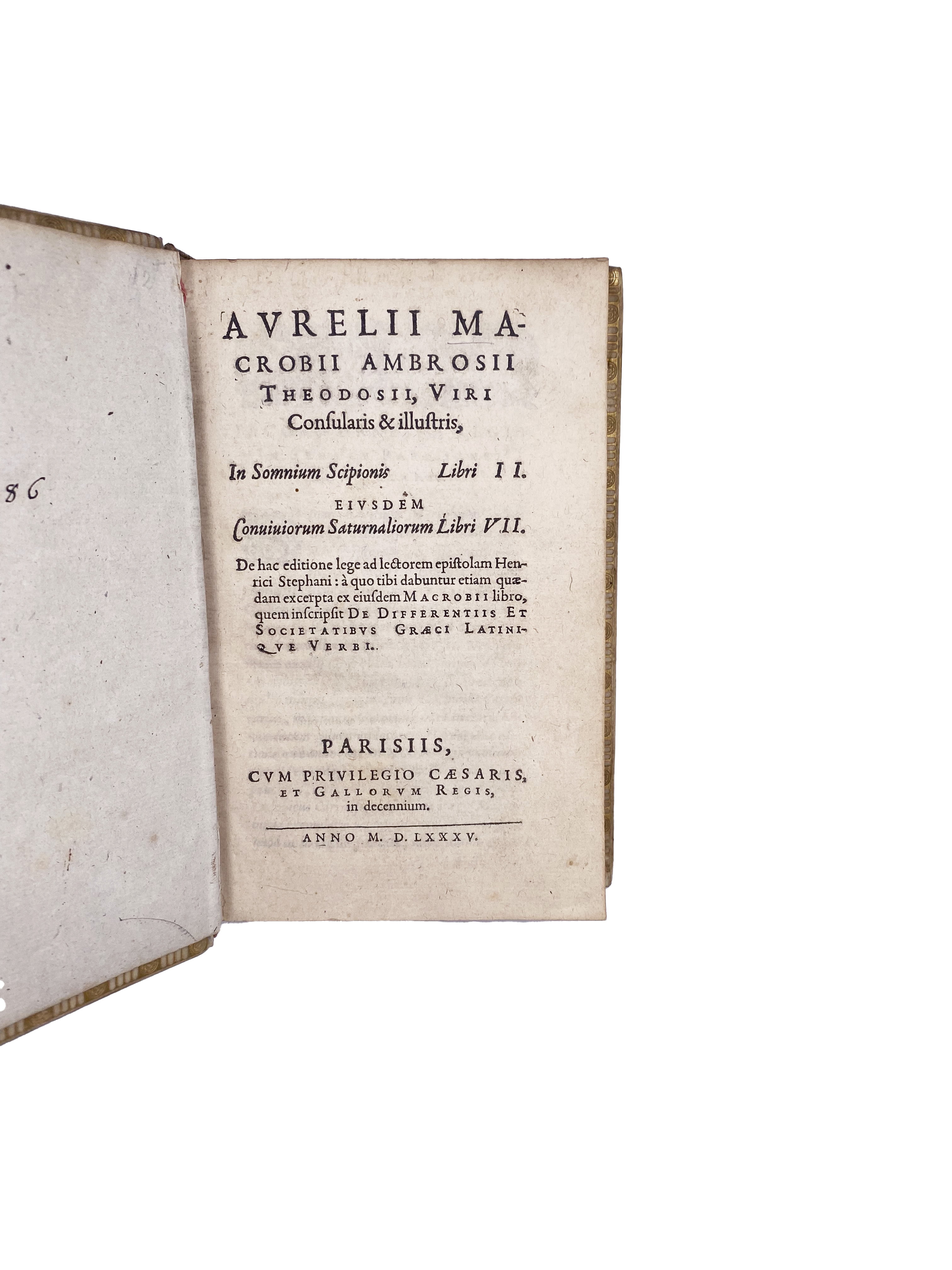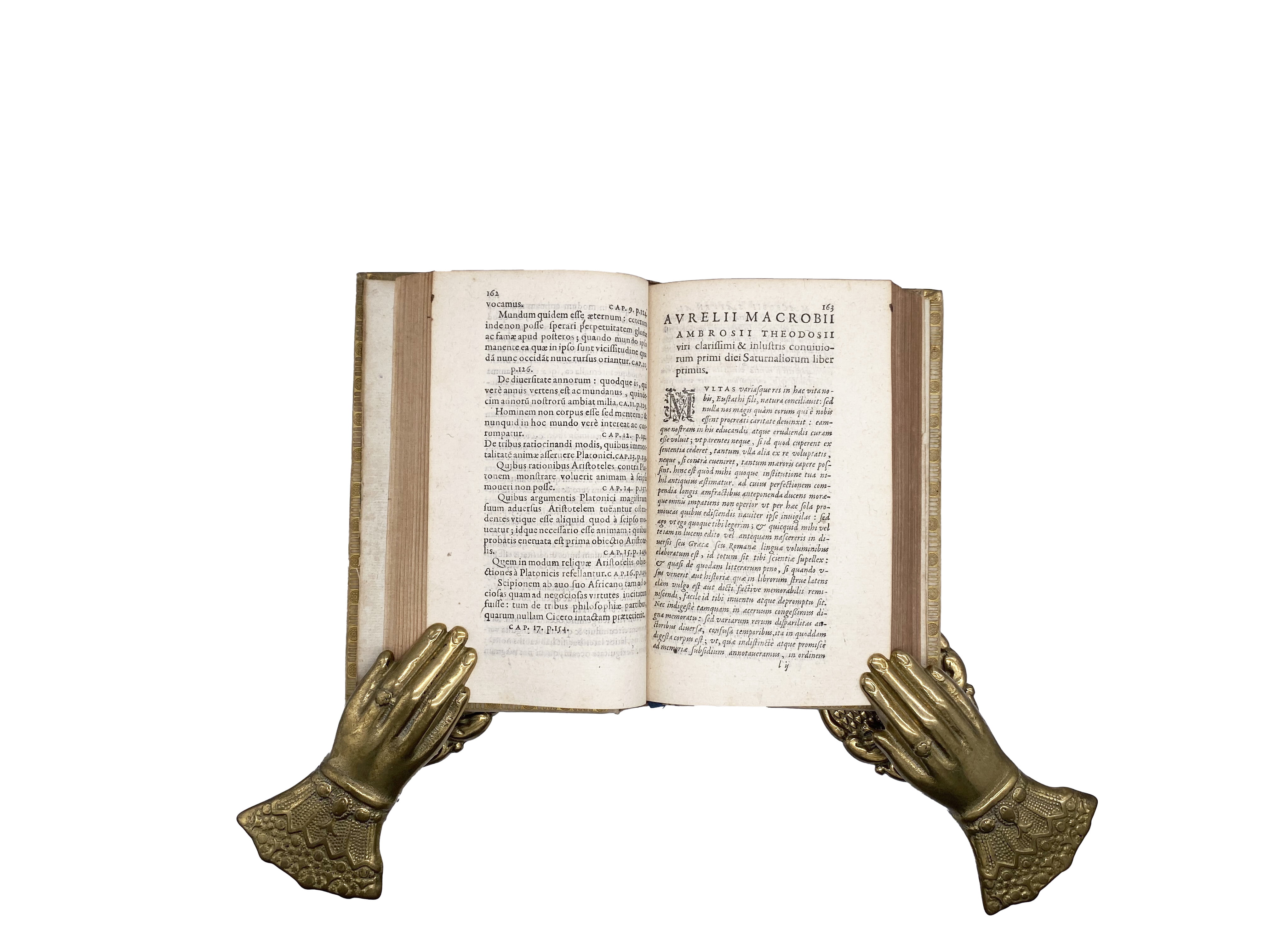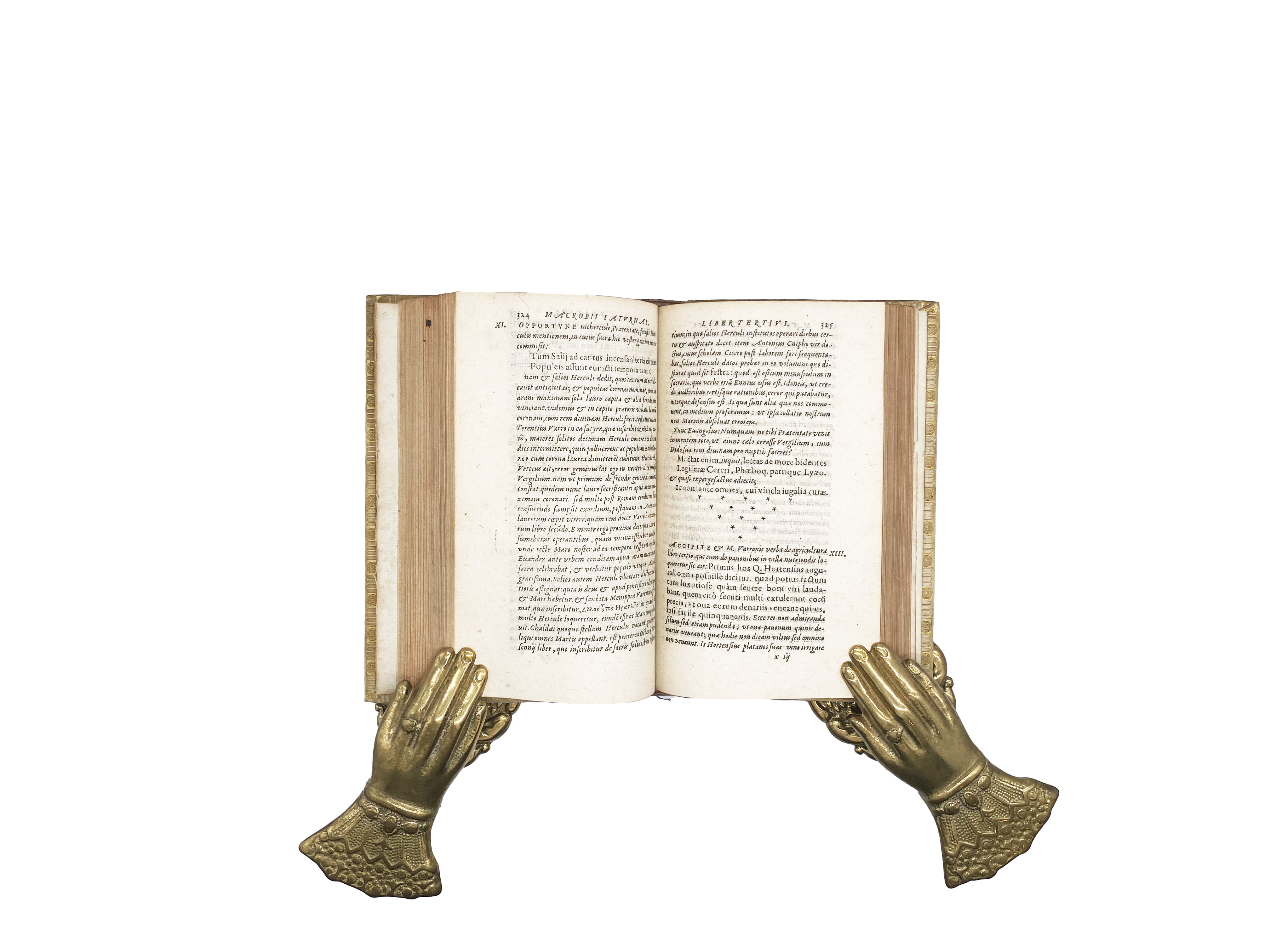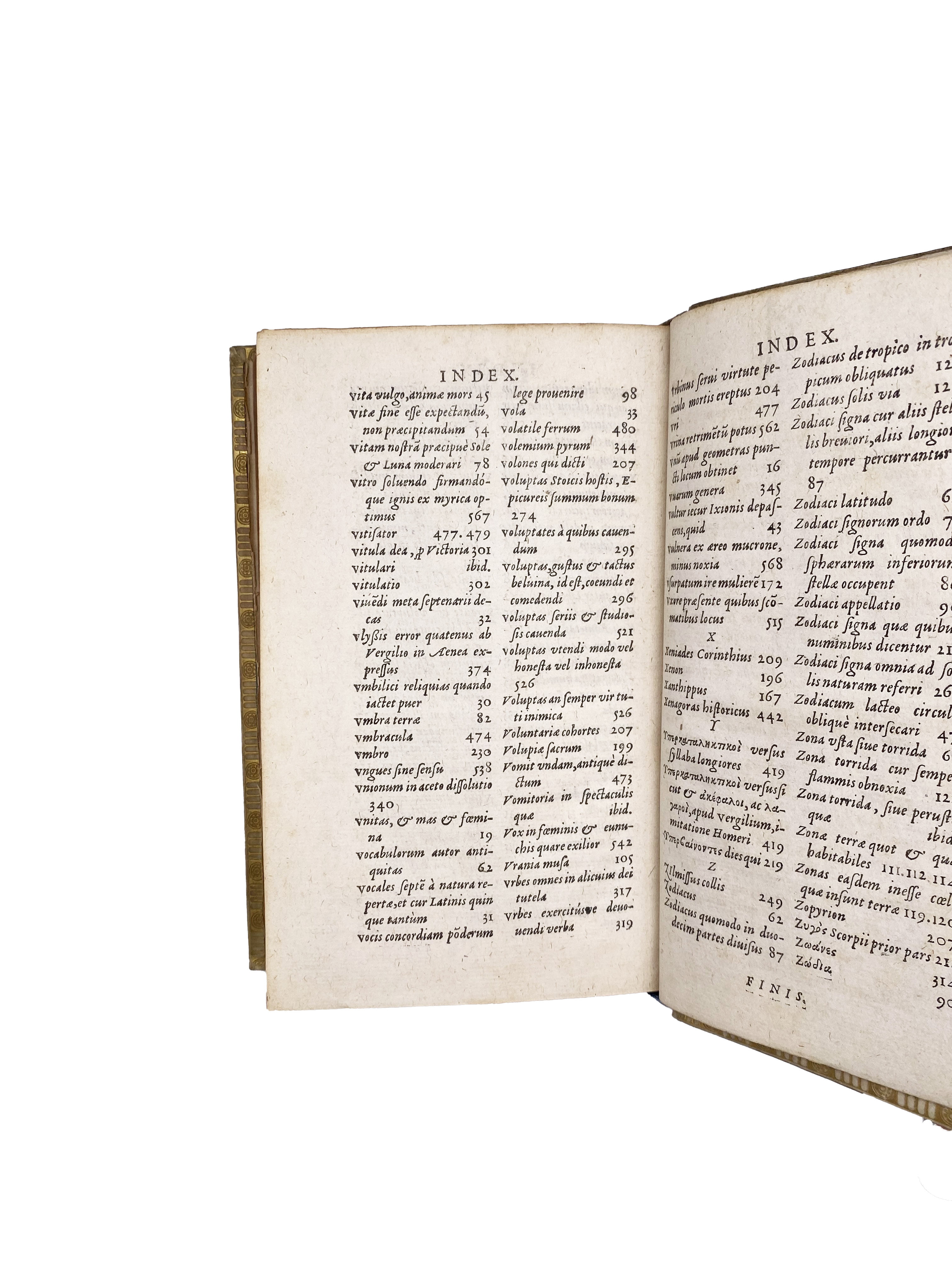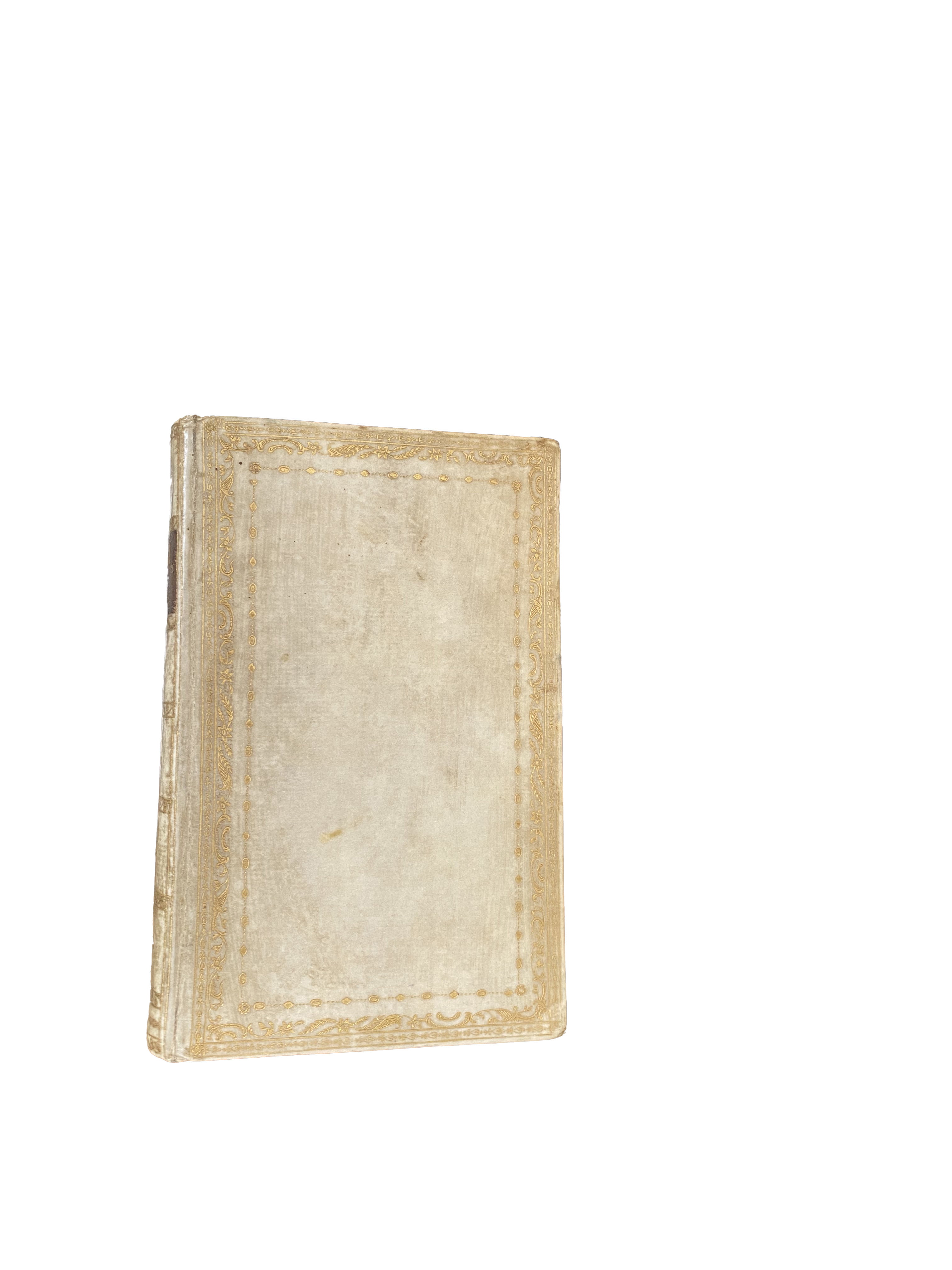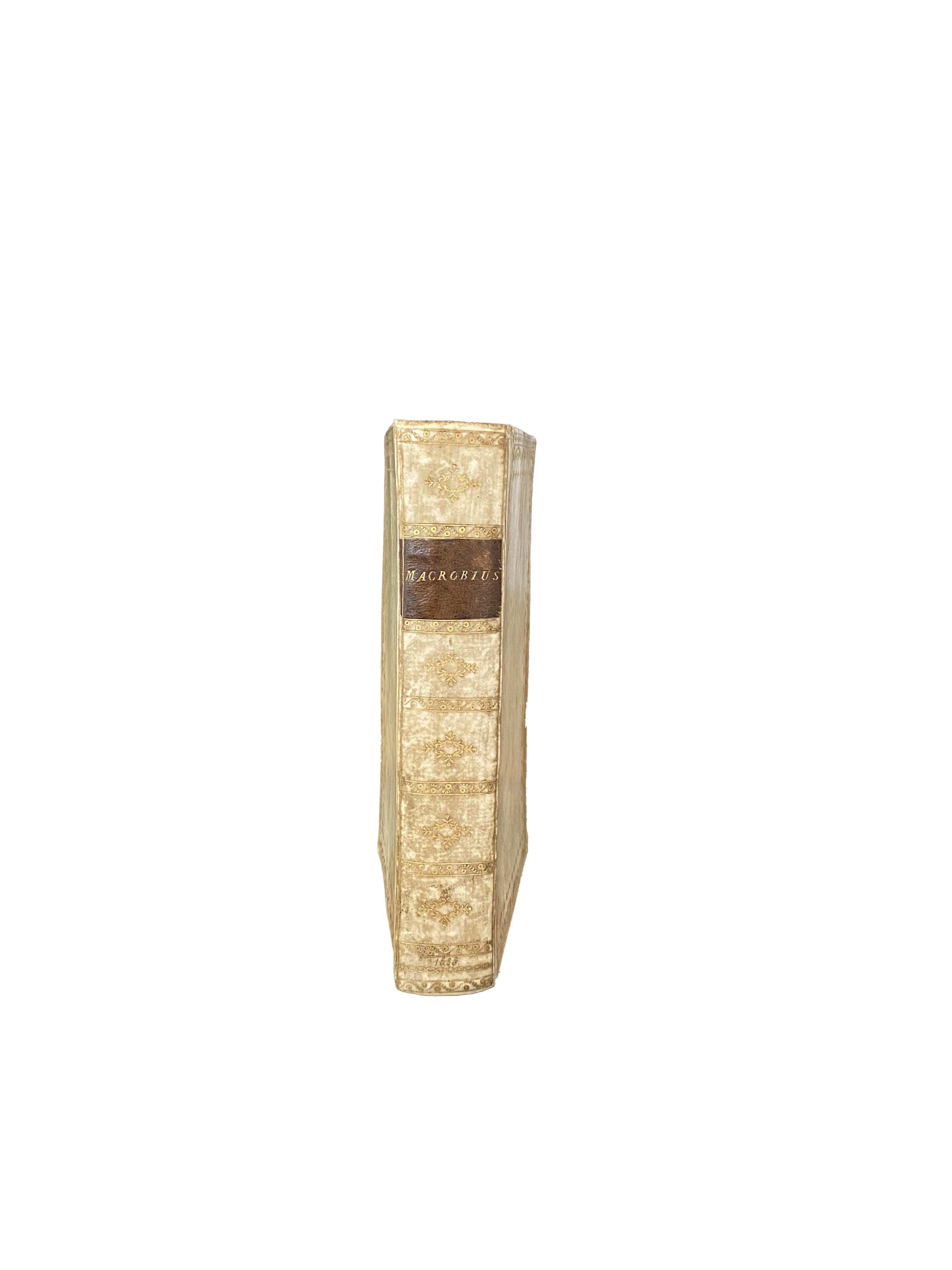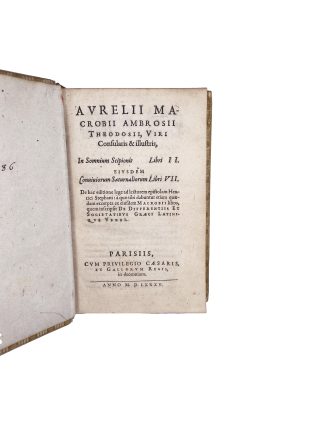MACROBIUS, AMBROSIUS THEODOSIUS.
LOVELY NEOCLASSICAL BINDING
In Somnium Scipionis Libri II...Eiusdem Conviviorum Saturnaliorum Libri VII.
Paris, [Henri Estienne], 1585£2,250.00
FIRST ESTIENNE EDITION. 8vo. Ff. (vii) 569 (xlii). Italic and Roman letter. Figurative head pieces and ornamental initials. Later shelf no. to fep, very occasional earlier marginalia. Slight age yellowing, some leaves lightly inked. A good clean copy in exquisite C18 vellum, gilt ornamental and floriated borders in the Neoclassical style, gilt fleurons to spine, morocco label, blue silk moiré pastedowns and endpapers with border gilt, dentelles gilt, aeg.
Exquisitely bound Estienne edition of these two texts by the Roman author Macrobius. The first is a commentary on the Dream of Scipio narrated by Cicero at the end of the Republic in which the elder Scipio appears to his grandson, and describes the life of the good after death and the constitution of the universe from a Stoic and Neo-Platonic point of view; from this Macrobius discourses upon the nature of the cosmos, transmitting much classical philosophy to the later Middle Ages.
The second work, Macrobius’ Saturnalia, with its idolisation of Rome’s pagan past, has been described as a pagan “machine de guerre”. It recounts the discussions held at the house of Vettius Agorius Praetextatus (c. 325-385) during the Saturnalia holiday and was written for the benefit of Macrobius’ son Eustachius. He covers a broad range of topics – mythological, astronomical and medical, tantalizingly citing numerous ancient texts, many of them now lost to history.
This text was edited by the renowned printer Henri Estienne. Estienne apologised for the quality of the printing of this edition: some leaves are rather light, though the text remains clearly legible. This edition is important as it is based on manuscripts that had been recently viewed by Estienne himself. Upon its publication it was sent to the famed Frankfurt Fair. As well as the text and commentary, Estienne included an explanation of the process of examining ancient manuscripts in order to arrive at the most complete and definitive text possible, providing a fascinating insight into Renaissance textual transmission.
In stock


